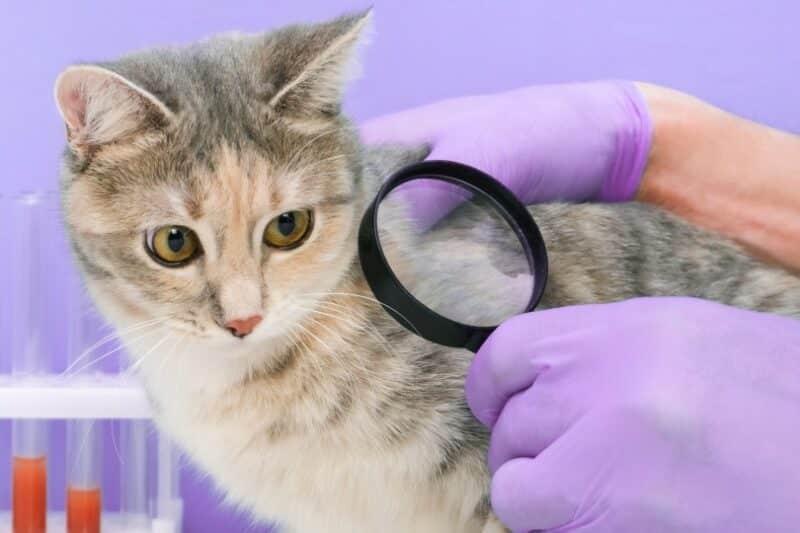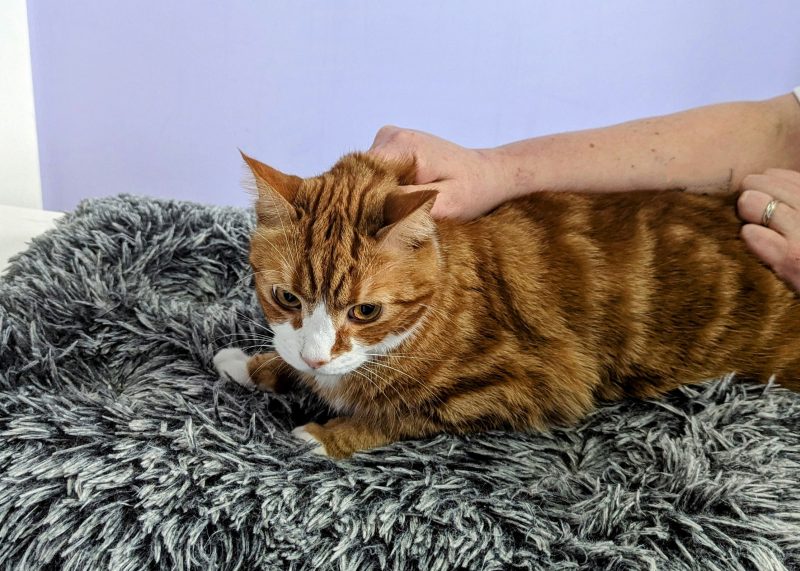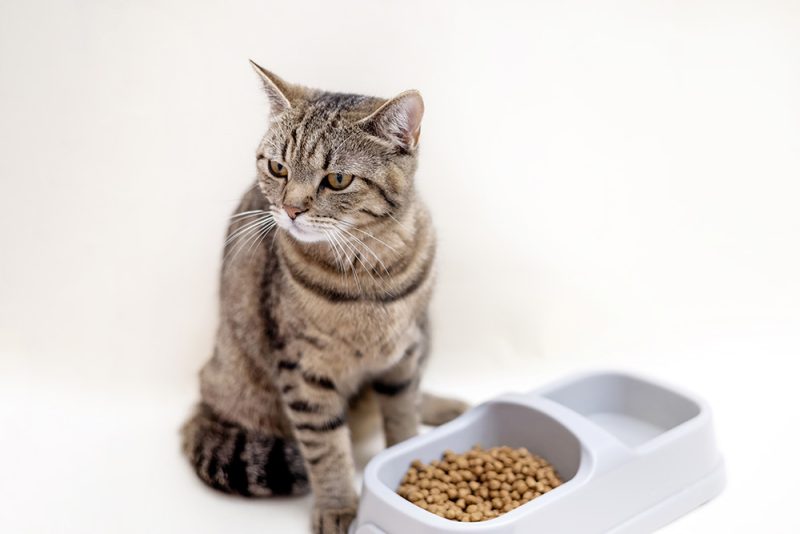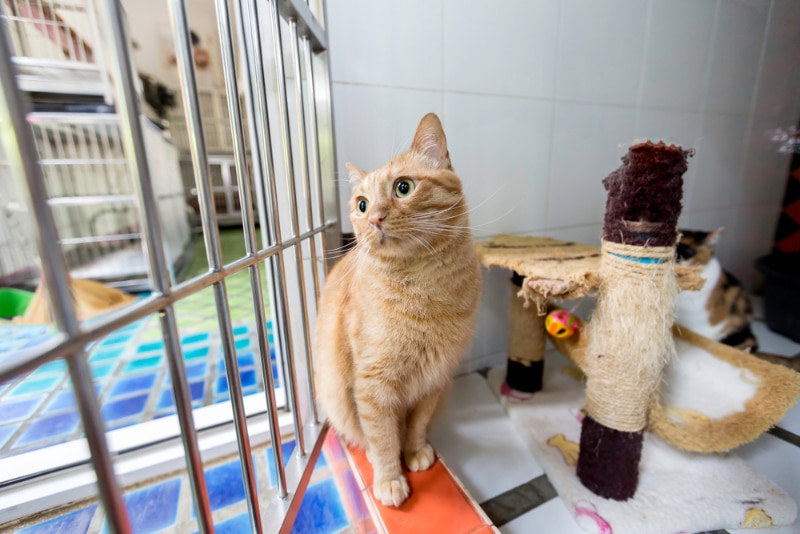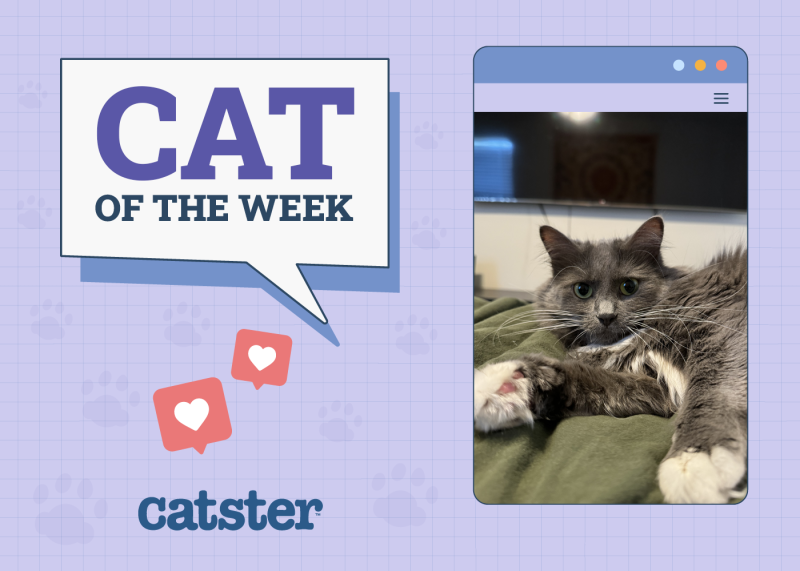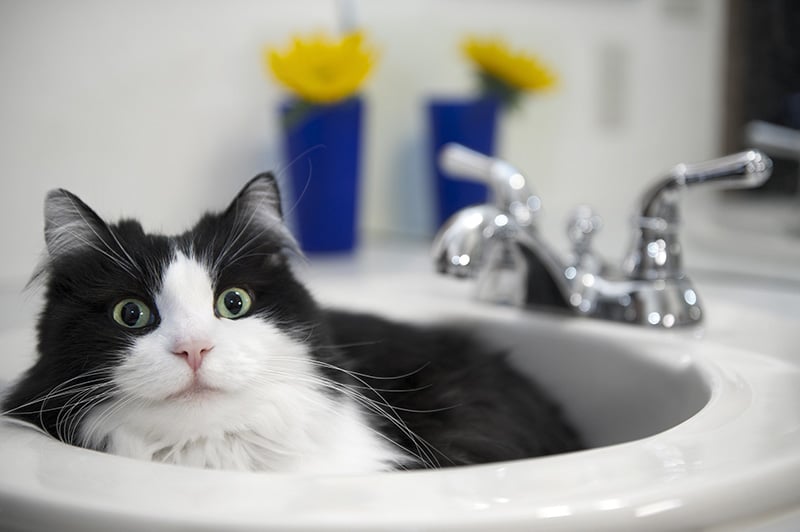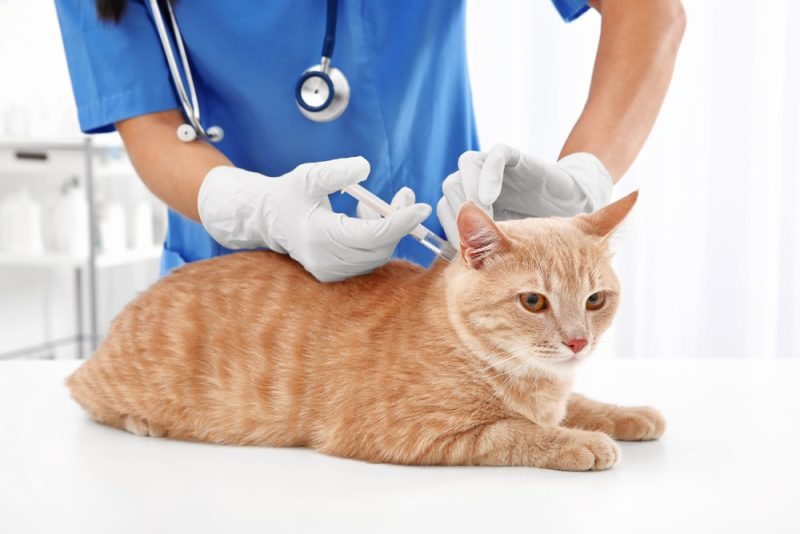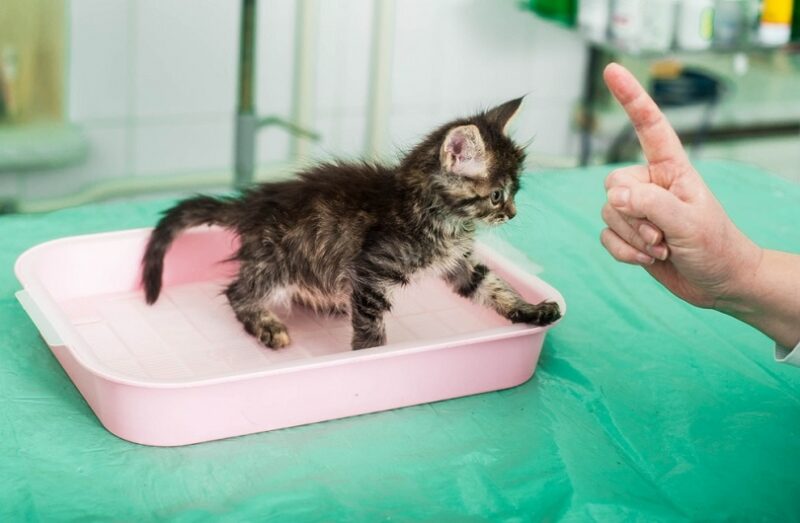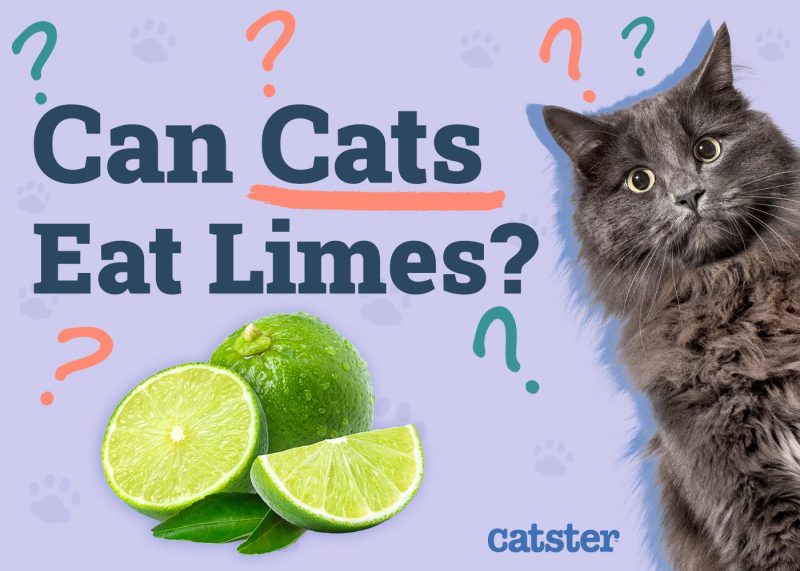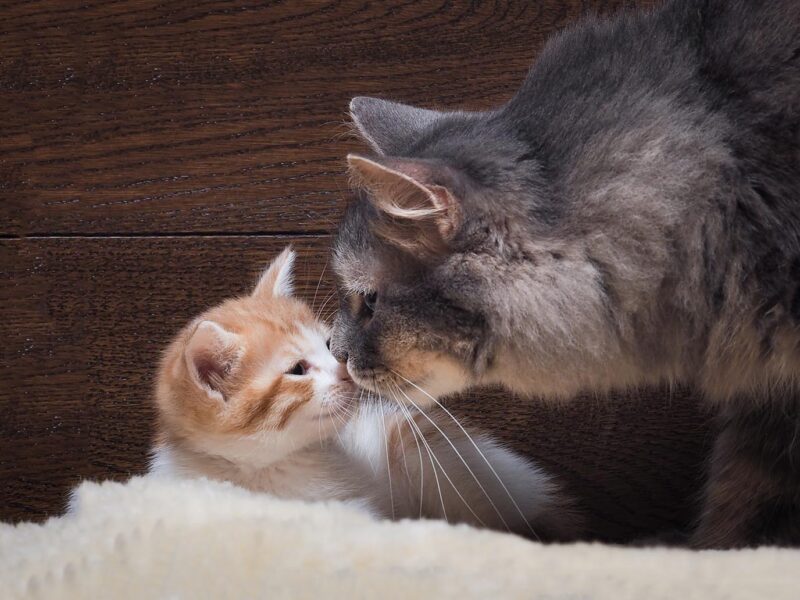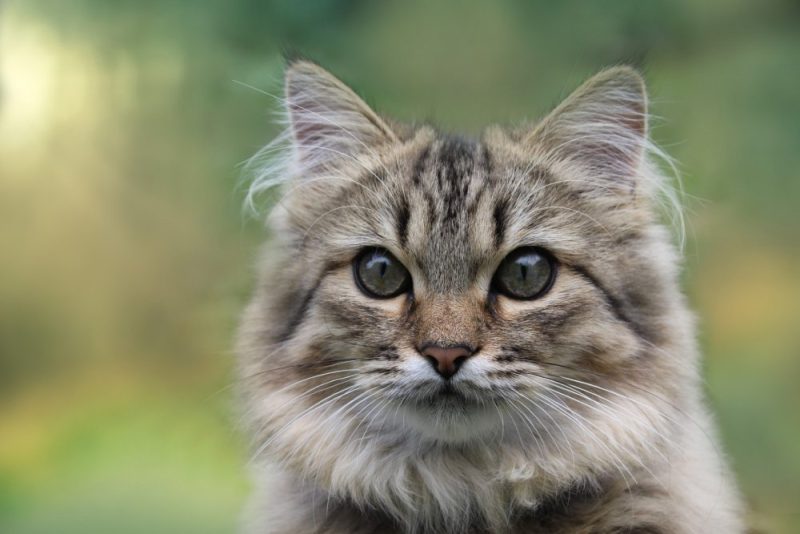In this article
Sevin Dust is an insecticide with active ingredients, including carbaryl, bifenthrin, and zeta-cypermethrin. It is commonly used in garden spaces to kill unwanted pests. Sevin Dust should never be used directly on your cat, it is highly toxic to cats.
In this article, we will discuss why Sevin Dust is dangerous for cats and which flea treatments are safe for cats, so keep reading to learn more.

Please note that the manufacturer for this product has changed its formulation. Sevin now uses a synthetic permethrin (pyrethrin) known as bifenthrin as its main active ingredient. Pyrethrins are toxic for cats, and bifenthrin is no exception to this rule. Therefore, extreme caution should be used when using this product.
For your pet’s safety, we strongly advise you to consult your veterinarian whenever you’re keen on using a flea product on your cat. Your veterinarian would have access to your pet’s medical history, can help you diagnose a flea problem (remember that not all itch is caused by fleas), and prescribe a treatment plan that’s safe and effective for your cat.
Does Sevin Dust Kill Fleas?
Sevin Dust is a garden and yard product. It must not be used directly on animals and must be used with appropriate safety precautions 1. It is highly toxic to cats and fish. Sevin Dust is manufactured to eradicate insect pests, including fleas. It is reportedly effective at killing fleas, and it remains active for long periods. However, for Sevin Dust to kill fleas, it must come in direct contact with them.
One downside to Sevin Dust as a flea killer is that it does not repel fleas or kill the eggs (although it can kill larvae). Likewise, Sevin Dust can only be used outdoors. It can eradicate fleas from outdoor spaces but never on pet bedding or pets.
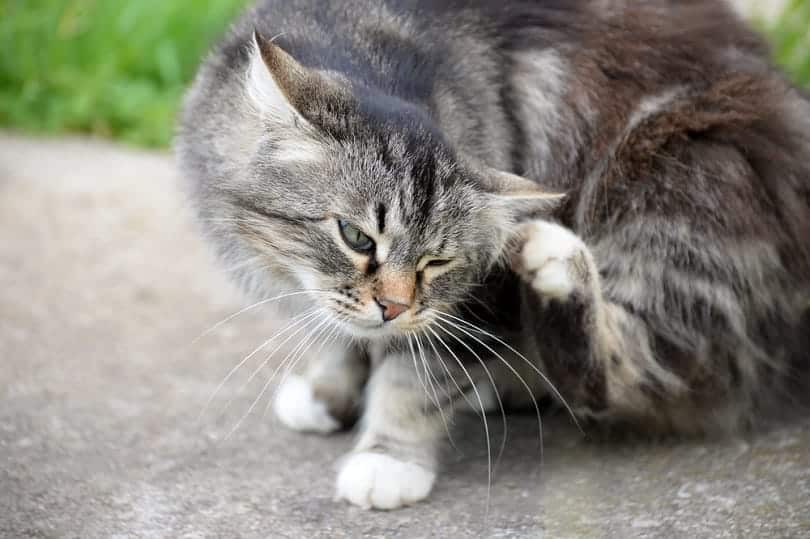
How Long Does Sevin Dust Last After Application?
A great benefit to Sevin Dust is that it lasts for 3 months. However, rain or other inclement weather can wash away the Sevin Dust and decrease its effectiveness. Once the 3 months have passed or the effectiveness has worn off, you can reapply it.
Keep track of when you apply Sevin Dust to your yard or outdoor area, especially if your cat plays outside. Since it can be active for so long, you must keep your cat away from the spots where the product was applied. Exposure to the insecticide can lead to disastrous consequences for your cat. Follow the manufacturer guidelines for proper use and exclusion times for pets.

Why Is Sevin Dust Dangerous for Cats?
Sevin Dust is dangerous to cats because it contains insecticides known as pyrethrins. Pyrethrins are toxic to cats since they cannot effectively metabolize the chemicals through their liver. Toxicity from insecticides can occur due to overexposure or misuse of the product.
Applying Sevin Dust directly to your cat is an example of misuse. Fortunately, the pyrethrins in Sevin Dust aren’t in a high concentration, reducing the risk to cats.
Another way that cats can come into contact with pyrethrins is by owners mistakenly applying a dog flea product on their cat or the cat grooming it off a dog. Flea products for dogs have a concentration of around 40%–50% pyrethrins and are highly toxic to cats.
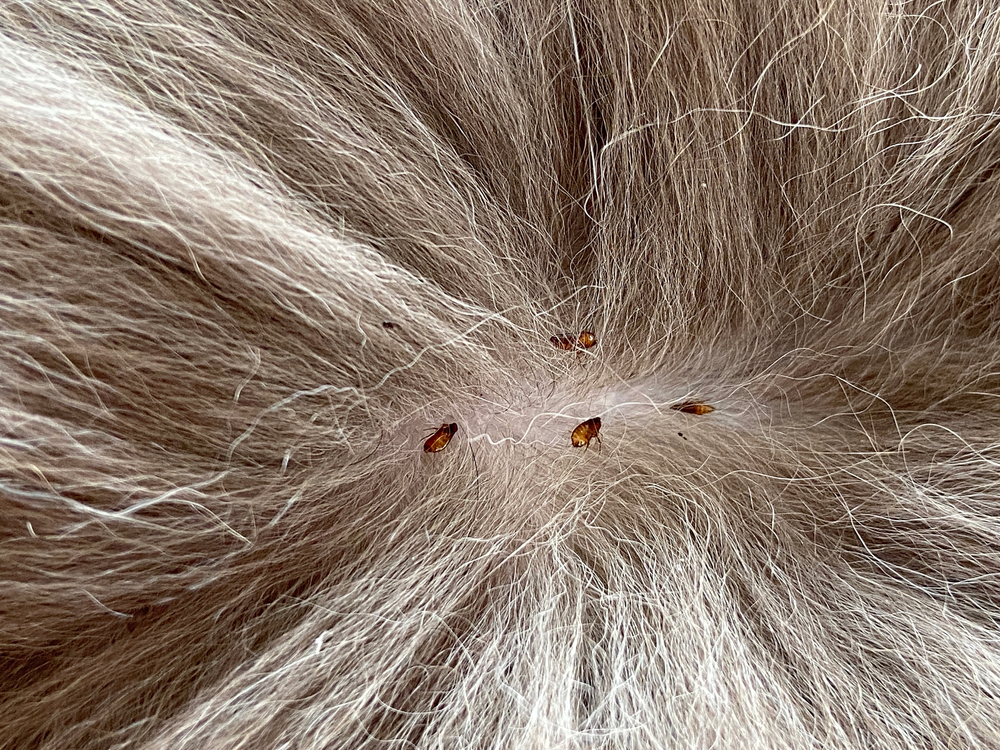
Signs of Insecticide Toxicity in Cats
If you suspect your cat may have been exposed to pyrethrins, contact your veterinarian immediately. There are some signs that you can watch out for, but some cats will not exhibit every sign listed in this article.
Occasionally, some cats may even display signs opposite to those mentioned below. However, there will almost certainly be a clear indication that something is wrong with your cat, either due to physical signs or strange changes in behavior.
- Vomiting
- Diarrhea
- Fever
- Depression
- Excessive salivation or drooling
- Anorexia
- Muscle tremors
- Heightened heart rate
- Constricted pupils
- Lack of coordination or difficulty walking
- Difficulty breathing
- Seizures
If you notice any of these signs, contact your vet immediately, remove your cat from the environment where the insecticide is (such as the garden), and stop using the product entirely.
If you need to speak with a vet but can't get to one, head over to PangoVet. It's an online service where you can talk to a vet online and get the advice you need for your pet — all at an affordable price!


What Are the Flea Treatment Products Available for My Cat?
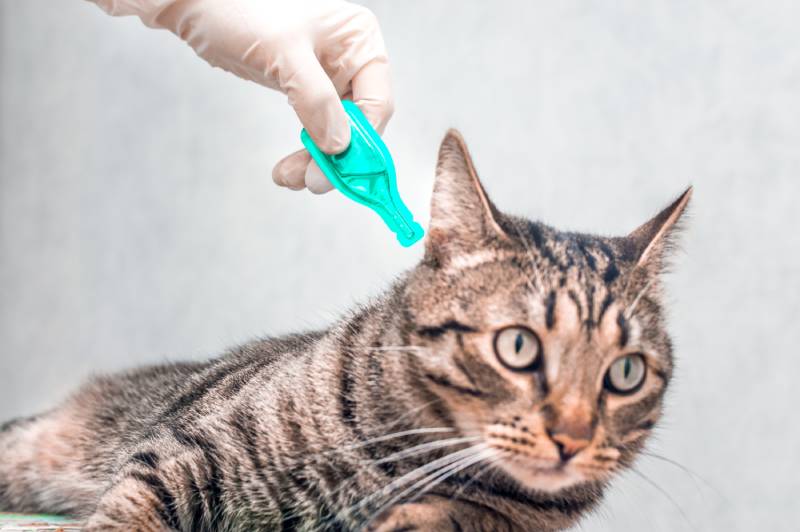
While Sevin Dust is not a safe product for your cat, plenty of feline flea treatments are available to help you out. You can find shampoos, powders, sprays, topical treatments, and oral medications. However, avoid using commercial products and rely on your vet for an effective prescription.
Cats should never be exposed to a flea killer designed for dogs since it contains toxic chemicals that can harm them. Your vet can prescribe a topical treatment that kills the fleas in hours and protects your cat for up to 3 months.
Although vet-approved flea treatments are effective, you must also treat your home for fleas. Sevin Dust cannot be used in your home, and some store-bought pesticides can harm your cat. It’s best to contact a professional exterminator who uses pet-friendly chemicals to eradicate the flea population on your property.

Final Thoughts
Sevin Dust is an effective insecticide that is not designed for treating feline flea infestations. When Sevin Dust comes into contact with our beloved pets, toxicity can occur. It can be used outside to kill pests by carefully following the manufacturer’s guidelines. Therefore, it is best to contact your vet to determine which flea treatment is right for your cat.
Related Reads:
- Epsom Salt Bath for Fleas on Cats: Is It Effective? Vet Approved Facts & FAQ
- Does Lavender Oil Kill Fleas on Cats? Vet Approved Facts & FAQ
Featured Image credit: lev.studio, Shutterstock
